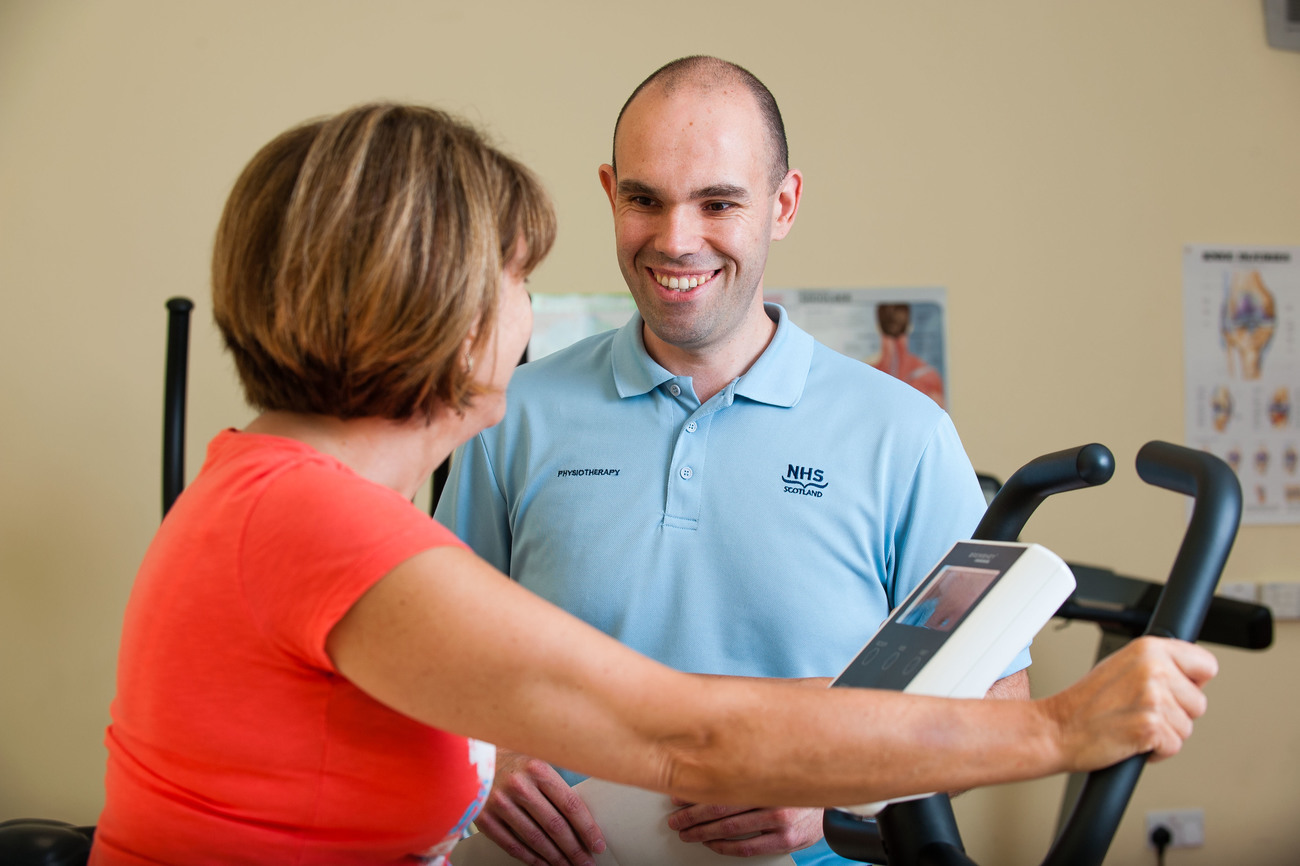Previous
Orthotic support worker
Apply for a vacancy on our recruitment website or do a Modern Apprenticeship to become a physiotherapy support worker in the NHS.
Being able to move functionally is an essential part of what it means to be healthy. Physiotherapy plays a vital role in enabling functional movement and helping people to improve their health.
Physiotherapy support workers work alongside physiotherapists to improve the quality of people’s lives. They work to maintain, restore, and improve the patient’s function and movement.

To become a physiotherapy support worker, you'll need a good standard of education. There are no specific entry requirements, but useful subjects include:
Speak to your guidance teacher about subjects offered at your school.

You may find it helpful to get some healthcare experience by doing a work placement or volunteering. You’ll get training, increase your knowledge, and learn new skills. This could help you when applying to university, college or a new job with NHSScotland.
A Modern Apprenticeship will help you get the knowledge, skills, and experience you need to reach your career goal.
Learn about the Modern Apprenticeship in Healthcare Support.
All Healthcare Support Modern Apprentices study 3 mandatory units:
You'll choose your remaining units from the clinical pathway options for physiotherapy.
As a physiotherapy support worker, you’ll support physiotherapists in helping patients restore their mobility and improve movement.
You’ll work with people of all ages with a range of medical conditions including:
Tasks include:
You’ll also use gym equipment, including cross-trainers, treadmills, and exercise bikes.
You'll need these skills:
Physiotherapy support workers work with other healthcare professionals, including:
You could work in:
When joining the NHS, you will work through the Mandatory Induction Standards. These standards are designed to help you work safely and must be completed within the first 3 to 6 months of employment.
You may also be encouraged while in the post to work towards further education qualifications. These may include:
Getting experience as a healthcare support worker can be very helpful if you decide you want to go to university and study to become a registered physiotherapist.

Discover the skills and qualifications you’ll need for each role and what the work will be like.
Explore careers
We'll guide you through the recruitment process, from applying online to interview preparation.
Help with recruitment